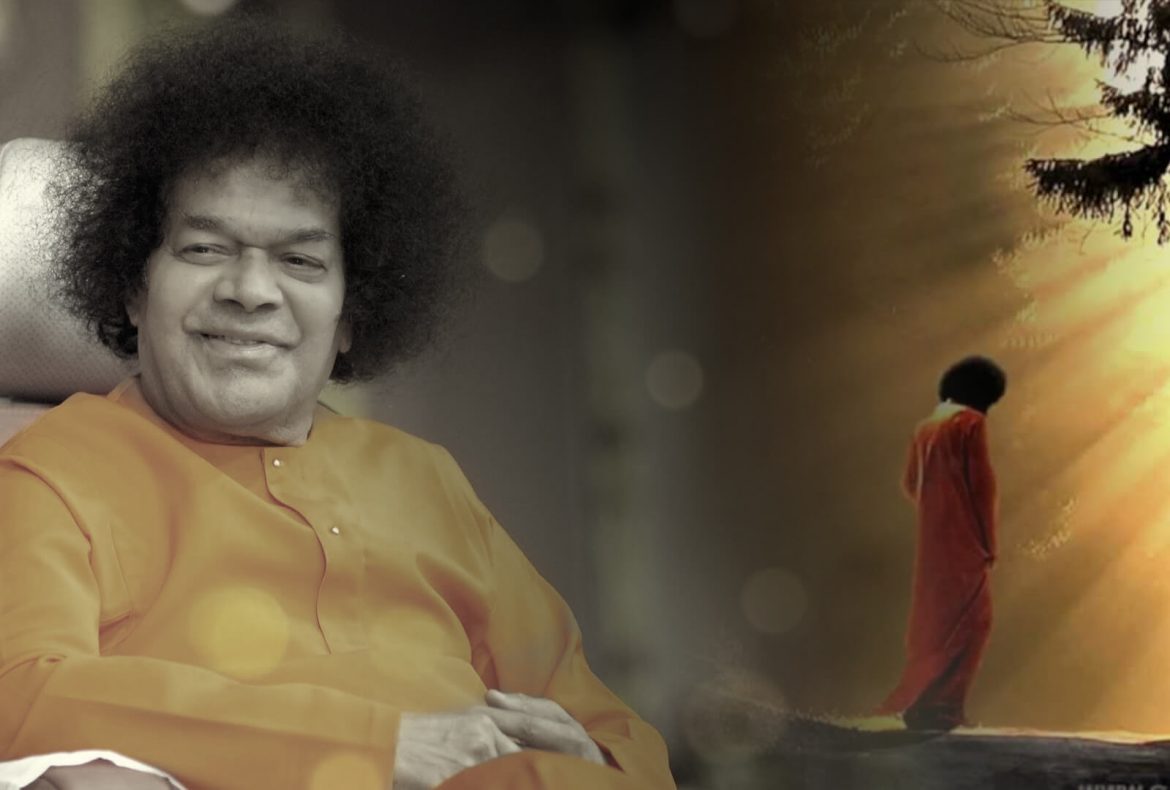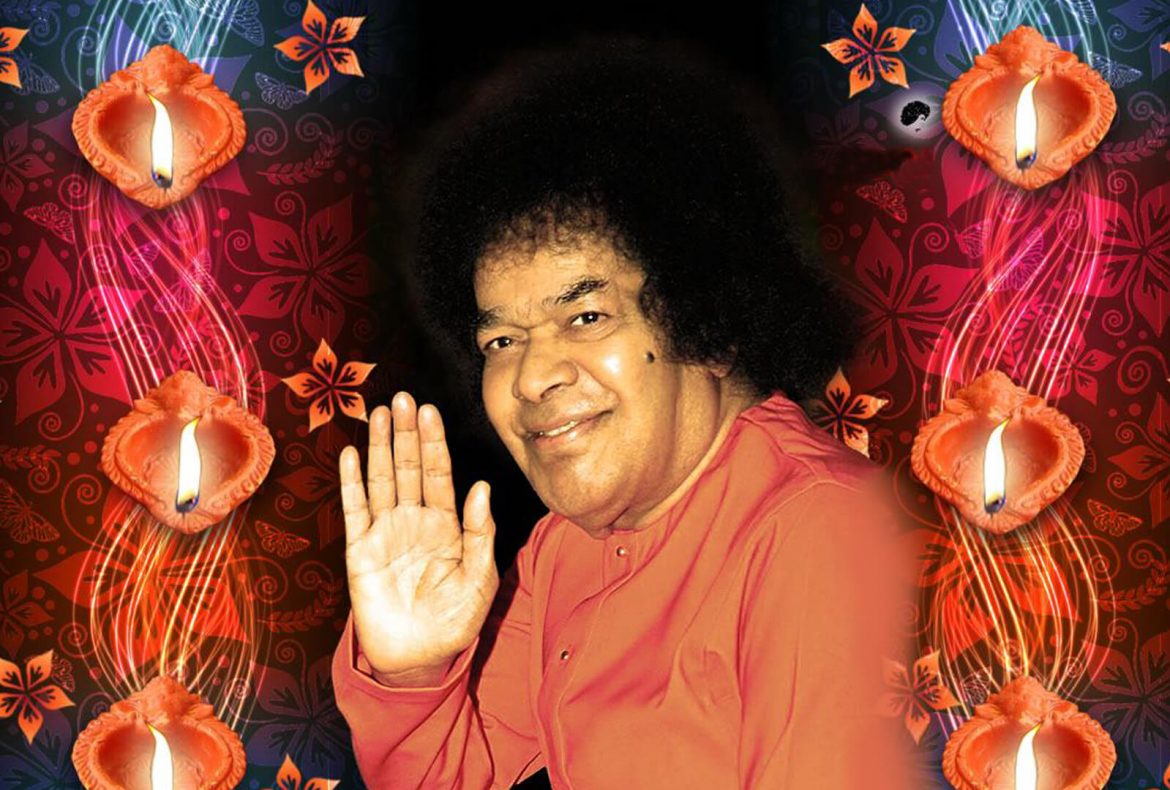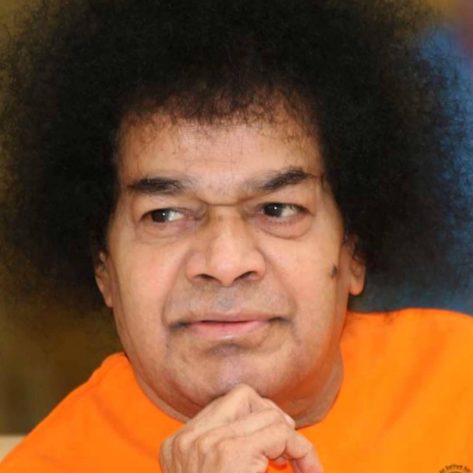Code Of Conduct
Every member of the Organisation is expected to undertake Sadhana (Spiritual discipline) as an integral part of daily life and abide by the following 9 point Code of Conduct which has been ordained by Sri Sathya Sai Baba for one’s spiritual advancement through self transformation.
Nine Point Code of Conduct:
Whatever religion one belongs to, whatever our spiritual heritage, the necessity to still the mind to control the vagaries of thoughts, to make the “monkey mind” do our bidding and not what it wills, is a basic spiritual practice.
Divinity resides and reflects in man – but we are unable to see this reflection of Divinity in the pool of our consciousness because the lake of our mind is subject to incessant storms, its surface ripped apart by wild lashing waves. Only when the waters of the lake are still, can the reflection of the moon be seen on its surface – likewise the reflection of divinity on the calm surface of our consciousness.
But if we merely do meditation and still our mind – is this enough? The reflection of the moon will not be seen even in the still water if the waters of the lake are filled with dirt and pollutants. Thus, two qualities are required to see the reflection of the moon:
a) The surface of the water must be still and
b) The lake must be free of dirt, debris, froth and pollutants.
Baba has placed meditation as the first code for those who wish to glimpse the Divine within; however, stilling the mind (the waters of the lake) is not enough – a recycling plant must be erected beside the lake to clean the water. Much of the other codes of conduct relate to this process of “cleansing the water” not only of ourselves, but for our family members also.
Baba in various discourses has instructed devotees on various techniques of meditation.
Pray in whatever way familiar to you…this will reinforce your meditation.
You can chant mantras, sing bhajans, hymns, kirtans, or just speak to God in your own way– whatever makes you feel close to Him and makes you truly feel that you are communicating with Him.
There is an age old axiom, “the family that prays together stays together.” Bhagavan is merely trying to remind us of this forgotten truth. In the early days families used to eat together and pray together – today – modern times, the notion of everyman for himself seems to have crept into families too.
Some Sai devotees have expressed this problem – “I am the only Baba devotee in my house –the rest refuse to accept Him – how can I keep this code?” Bhagavan does not say pray to Him! Have your family prayers in the traditional method of worship be it Hindu, Christian or whatever. You need not even have Baba’s photo there, if this will help achieve the objective of weekly family prayer.
Also, it does not matter if all refuse to join. Start the family prayer with whoever is willing. Keeping to a fixed date and time and continue with faith – let Baba do the rest. Many such family prayers that started with one or two now include the whole family. If need be start alone and leave the “door” open for others to hear your prayer and to join.
The important thing to remember is not to be disheartened by the attitudes of others who do not join. Give them time! Not all buds bloom at the same time when the sun shines – but the sun does not give up – it shines daily and silently, and over time all will bloom!!
Your family members should see the visible, positive transformation in you– that your sadhana has made you more loving, more kind, more gentle, more understanding. This will have greater effect on non-participating family members and urge them to join you.
Make your whole day an extension of your morning and evening prayers. Slowly, they will be drawn to the power that has transformed you and will join you.
Moderation and love should be your key guiding factors.
The reason for this code is obvious when one becomes aware that what is taught to the children in the Bal Vikas classes are:
a) One’s own religion – chanting of prayers, songs, hymns, lives of saints etc.
b) Knowledge and respect for other religions.
c) Human values – respect for parents and elders, cleanliness, good conduct, confidence, cooperation, self help etc.
d) The life and message of Bhagavan Baba.
All these are taught through sophisticated, dynamic programs where only gurus who have undergone a specific training program will be qualified to teach.
This is merely a codification of an injunction that is in every religion of the world – to serve man and to serve God – “Service to man is service to God”.
Bhagavan Baba has prescribed that the qualification of membership of a Sai organisation is not just to attend bhajans and to love Baba, but to accept the 9 Codes as part of our life and to perform 4 hours of service every week to the poor, the sick and the needy.
Bhagavan has declared, “Hands that help are holier than lips that pray”. Devotees/members realise that this service aspect is a part of the Divine formula for salvation and God’s Grace.
The concept of bhajan singing, the foundation of the Sai movement, has been brought into its true perspective, i.e. as a direction towards higher level of Spirituality. In fact, the pursuance of bhajans as principal sadhana , that Bhagavan has called for, is to still the agitations of the mind, and flush out the insects of excessive desire or lust, anger, greed, jealousy and attachment. This Sadhana can lead devotees towards greater internal peace, expanding love and unity of vision.
Adopting the concept of “once a month bhajan” should not end there – once a month or once a week, the sincere aspirant must constantly be “tuned in” to devotional songs, analyzing the meaning of the songs and the messages, and using it as a guide, and as a beacon of love in their daily lives.
Bhajans bring about the necessary results, in the form of, the softening of the heart, the gentleness of speech, the kindness of thoughts, the yearning to serve. If the name and message of God is constantly in the mind, the cleansing effect will most certainly take effect, and devotees will see their lives, their character and behavior transformed.
All Sai devotees are expected to study the life, messages and teachings of Swami. However, the literature of all the great religions and saints should also be a part of our reading material .In short, “Sai literature” should be interpreted as literature that helps provide Spirituality ,Awakening and Inspiration.
The “regular study” refers not merely to individual study but also participation in “Study Circles” organized by the Centre.
Sravana (listening or absorbing), Manana (reflecting, digesting), Nidhidyasana (putting into practice or acting on the message) are three stages in spirituality.
It is not the quantity of knowledge you absorb, but the quality and the degree you reflect and integrate the message into your life.
Speech must be soft and loving. Words once uttered can never be retrieved. Hence care has to be taken to ensure that no harm is caused by our words. Irrespective of who the person to whom we are speaking, words have to be obliging and loving. Scars left behind by harsh words cannot be erased. Swami says, ’You may not always oblige ,but speak obligingly’
Backbiting, character assassination, falsehood about another, trying to belittle or bring down the esteem of one in the eyes of the other, is a deadly cancer that has destroyed many groups, even great movements and most certainly must be considered an anathema to any spiritual body.
It simply means that if we speak it should be to genuinely improve or elevate and not to condemn and degrade.
Do not waste Money People who want to have a measure of peace and contentment in their lives, must have a ‘Ceiling on Desires’ … a ceiling on Food, Energy, Time and Money.
In summary the Divine call is as follows:
Do not waste Food … do not overindulge in food. Do not waste Energy … electricity, water, your own energy, (too much talking, anger, jealousy and other negative expressions are equally a waste of Divine energy). Do not waste Time …. and whatever genuine knowledge you have, use it well.
Ten Principles:
- Love all humanity without any distinction.
- Keep your home and its environment clean; it will ensure health and happiness for you and society.
- Help the needy (sick and aged) with food, clothing and shelter with love and care. Help them become self-reliant.
- Be examples of honesty. Do not participate in any corruption such as bribery.
- Do not develop jealousy, hatred and envy.
- Develop self-reliance; do not depend on other to serve your personal needs.
- Observe your country’s laws, rules and regulations and be exemplary citizens.
- Adore God, abhor sin.


Core (Universal) Principles of the Organisations:
- There are no fees or subscription or any other charge for the membership of the organisation.
- Solicitation of funds, directly or indirectly in any manner is strictly prohibited. The expenses of the day-to-day activities of the units of the organisation are met by voluntary contribution by the members. The Sathya Sai Organisation and its units must not collect money or material from those outside the membership. Fund collection is as much opposed to this movement as fire is to water. If you yield on this point, spiritual advance will perish. Let only members contribute; do not ask all and sundry, or anyone who is not a member of the Samithi (unit). -Divine Discourse(14-05-1971)
- Sri Sathya Sai Seva Organisations cannot associate itself or partner with any other organisation be it religious or spiritual.
- The organisation does not strive for publicity of its work, achievements or activities. The Units of our Organisation should not encourage pomp or show—for they are alien to the Spiritual Path. -Divine Discourse(21-11-1970) We do not need any publicity or advertisement. Work silently. Prachar (publicity) is not the achar (practice) of Sai Organisation. We should work for the progress of the Organisation through practice and spread the message of love throughout the world. The entire humanity should unite and live like one family. -Divine Discourse(18-03-1999)
- The organisation shall never connection with the government at any level.
- Proper segregation and separation between male and female members of the organisation is always maintained while performing any activity of the organisation.
Sri Sathya Sai Seva Organisations
The Sri Sathya Sai Seva Organisation was founded in the year of 1960 by Bhagawan Sri Sathya Sai Baba to enable its members to undertake service activities as a means to spiritual advancement. The Sathya Sai Seva Organisation derives inspiration, guidance and strength from Bhagawan Baba’s mission and message of propagating the truth of man’s inherent divinity, which is proclaimed and preached by all religions of the world. In consonance with this truth, the Organisation has as its main objective selfless love and service without any distinction of religion, nationality, race, socio-economic status, either for those who work in the Organisation or for those who are served by them. Thus, it transcends all barriers, leading humanity towards the ideal of ‘Fatherhood of God and Brotherhood of Man’. In fact, this spiritual basis enables everyone in the Organisation to pursue his own religion better by putting its teachings into practice by way of love and service to the God who dwells in all hearts.

Sri Sathya Sai Seva Organisation, is one that accepts the equality of all the Religions across the World and promotes the Unity of mankind across the globe. The Sri Sathya Sai Seva Organisation India has undertaken several nationwide initiatives and programs under the different wings of the organisation which has touched the lives of innumerable people across India in a positive way. With the moto of “Transforming Self to Transform the World”, the ever growing Sri Sathya Sai Seva Organisation India with its thousands of Seva Samithis and Bhajan Mandalis (centers) established all across the length and breadth of the country, is creating a platform to embark upon this divine transformation journey for both the individual and the society at large.


